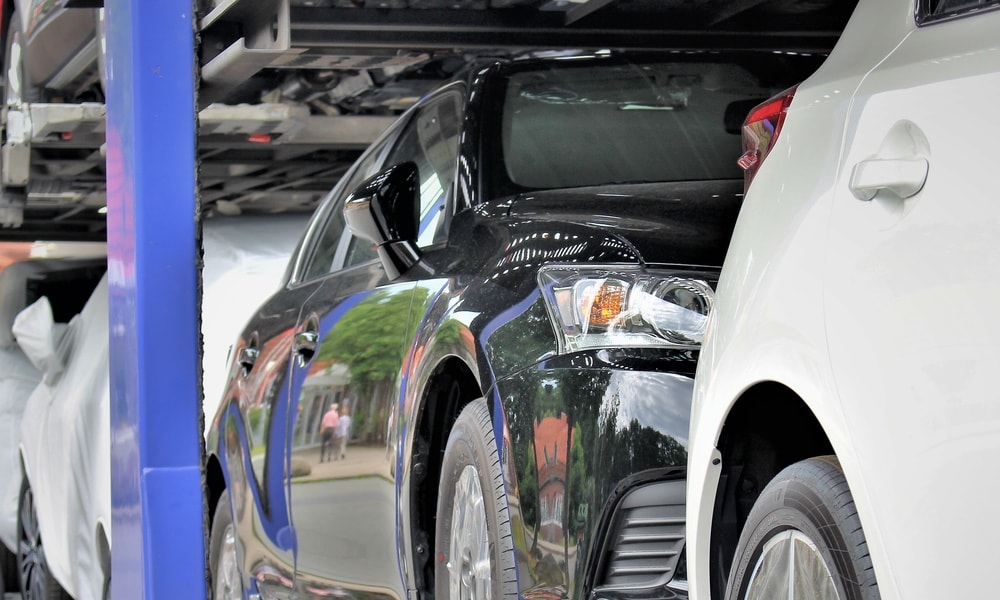CHOOSE
A DIFFERENT TERRITORY

Across the country, thousands of drivers with old vehicles sell them to EMR for processing and recycling every week.
“EMR has the widest network of authorised treatment facilities (ATFs) for vehicle recycling in the UK, which means anyone selling their car to us can rest assured that we will recycle any metals and plastics in a compliant and sustainable way, ready for re-use in a whole range of applications,” says Ian Sheppard, Managing Director, EMR.
“As the material contained in an end-of-life vehicle is valuable to manufacturers, EMR is also able to pay drivers a competitive price.”
When EMR receives a vehicle for recycling, it is just the beginning of the story. EMR employs a whole series of processes and technologies to ensure the many different metals, plastics and other materials that make up a modern car can be separated, cleaned and sold on to manufacturers.
So, how does this work?
“As soon as a vehicle arrives, we first remove hazardous liquids such as any remaining fuel, oil or air conditioning and radiator fluid. These are safely stored before being taken away to be processed by specialist contractors. The fuels, oils and air conditioning fluid are recycled, where suitable, ” Ian says.
Once the fluids and tyres have been removed, vehicles are ready to be shredded, breaking them up into thousands of pieces for separation.
“By putting them through one of our six shredder facilities we can process up to 300 vehicles an hour, ending up with fist-sized pieces of material which are much easier to separate,” Ian explains.
EMR’s giant shredders – which operate with between 2,500 and 10,000 horsepower – also begin the separation process, using powerful magnets to separate ferrous metals such as iron and steel.
Ferrous metal represents 60 to 65 percent of the total material in most cars and is sent straight to local steel mills, or exported for processing, where it can be sustainably and responsibly re-used in the next generation of vehicles, consumer goods or in construction.
The rest of the material includes non-ferrous metals such as aluminium, copper, brass and zinc alongside plastic, wood, foam, rubber, paint and dirt. These are separated into two streams using the equivalent of an industrial-sized vacuum cleaner to remove the lighter material, leaving behind the heavy material.
Historically, some of this light material would end up in landfill but EMR has invested significantly in developing processes to extract any valuable material for recycling.
“We now recover any light pieces of metal at our Oldbury and Liverpool sites and hard-to-recycle plastics are turned into high-quality virgin polymer substitutes at our world-leading recycling facility, MBA Polymers, in Nottinghamshire,” says Ian.
This leaves the heavy material, which includes a mixture of non-ferrous metals as well as heavier plastics and rubbers.
“All of this material goes to EMR’s processing site in Newmarket, Suffolk, where our team employs a range of sophisticated mineral separation techniques to produce saleable metals and plastics. This includes sink float separation where EMR carefully alters the density of water, allowing each material to float to the top as the density changes. This produces a very clean non-ferrous metal that goes straight back into the circular economy.
“EMR also produces a wire concentrate from all of the electronics that exist in modern cars which is further processed to extract high-quality copper granules,” Ian adds.
This level of sophistication has only become possible over the past decade as EMR has invested in creating innovative, sustainable ways to reclaim more of the material contained within end-of-life vehicles. And Ian says this investment is continuing to transform the industry:
“In the years ahead, EMR will increasingly use remote sensing and machine learning technology to further increase the quality of the recycled material we produce.”
Across the UK, Ian and the rest of the EMR team are working hard to ensure the material in every end-of-life vehicle it recycles is returned to the supply chain in an efficient, sustainable and effective way:
“And that’s a commitment we’re extremely proud of.”